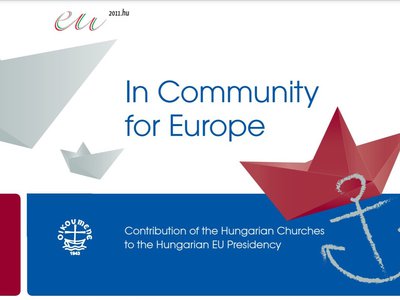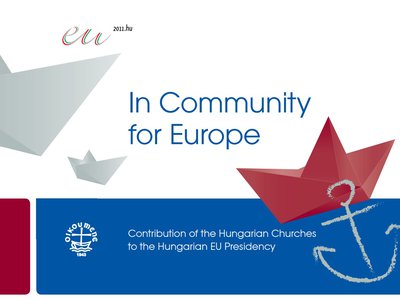04/07/2012
COMMUNIQUÉ ON CIMS To whom it may concern
27/06/2012
A New Reformed Collegium for Roma Students in Debrecen
19/06/2012
Youth Forum - A successful dialogue between youth and the church
19/06/2012
Roma are by far not a Homogeneous Group
19/06/2012
A response from abroad – an interview with a Dutch “Life Belt” supporter
01/06/2012
Life Belt Programme – Financial Support for Families in Need
01/06/2012
No Life is Barren – a Reformed Roma Mission conference
08/07/2011

The Hungarian EU Presidency – From Reformed Perspective
08/07/2011

Can Post-Trianon Reconciliation Come About?
18/03/2011

Reconciliation in Central-Eastern-Europe – a dream or reality?
08/03/2011

Central Europeanism and Cultural Diversity
04/03/2011

Reformed Church in Central Europe: Mission of Reconciliation
04/03/2011

Rather East
03/03/2011

Conference on the EU Presidency and Cultural Diversity for Central European Reconciliation
25/02/2011

Central European Ecumenical Discussion in Budapest
25/02/2011

Churches contribute to European Roma strategies
21/02/2011

Gypsies in the history of Hungarian protestant churches
18/02/2011

Gypsies in Europe
11/02/2011

Our service for the Roma communities
28/01/2011
